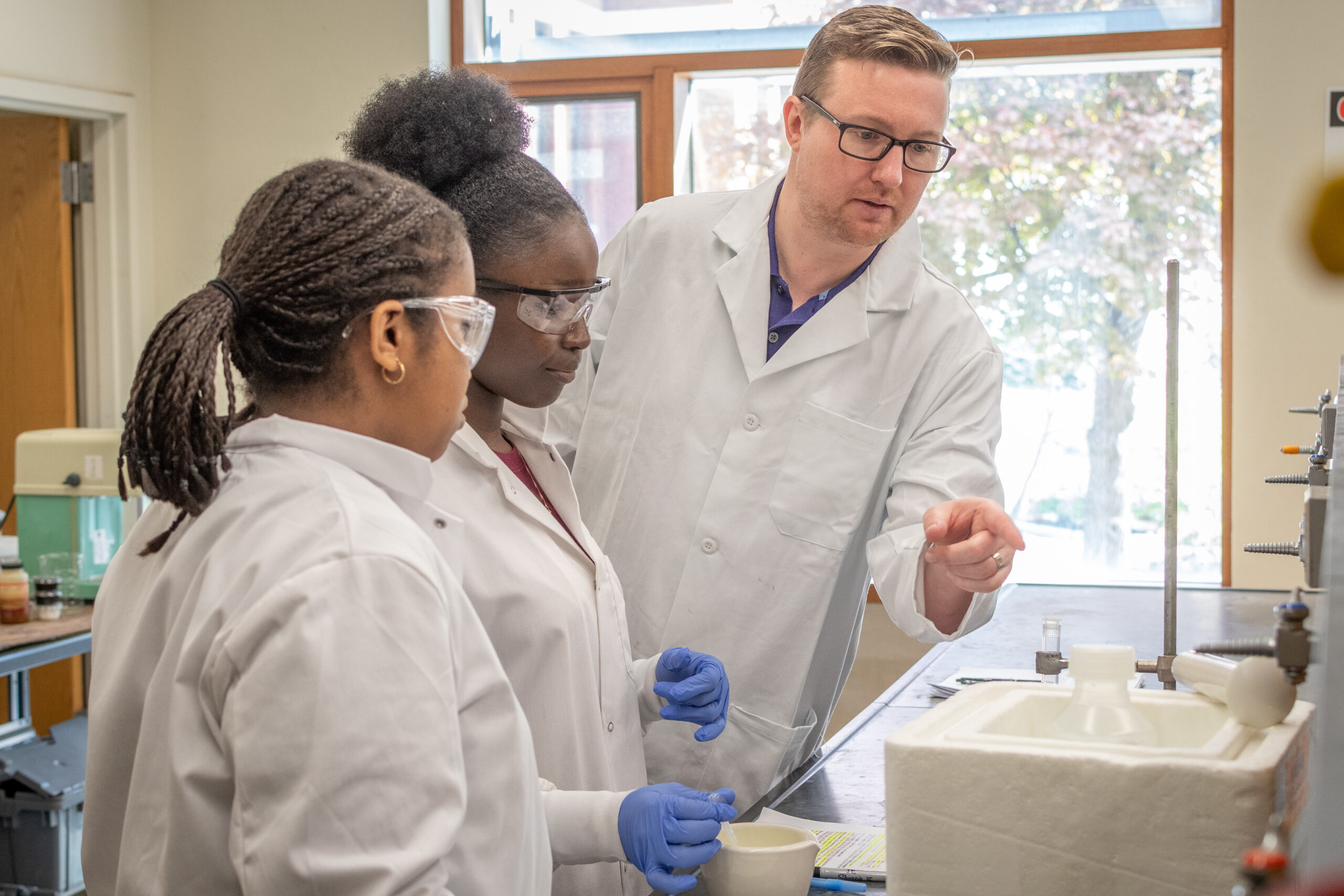Donald Spratt sparks interest in STEM careers through high school outreach

The COVID-19 pandemic has put a lot on hold for high school students, including field trips, college tours, and class outings. But since December, more than 300 local science students have had an opportunity to explore careers in the STEM (Science, Technology, Engineering, and Math) fields thanks to an outreach effort by Donald Spratt, associate professor of chemistry and biochemistry at Clark.
Over the past several months, Spratt has hosted multiple advanced biology and chemistry classes from Worcester County high schools during a series of virtual presentations aimed at sparking interest in STEM careers and offering students advice as they think about life after graduation. Spratt’s 90-minute presentation, “‘LEEP’ing into a Science Career,” helps students recognize the unique scientific skills they possess that can be applied to different job settings and situations. Spratt encourages the high schoolers to set themselves up for success by becoming confident, hard-working individuals who are ready to take on new challenges.
“Looking at a longer winter break and wanting to continue to build strong connections between Clark and the local high school STEM programs, I reached out to high school teachers in the Worcester area to set up Zoom workshops to discuss the importance of soft skill development and being part of a productive science team,” Spratt says. “This has certainly been a crazy year, but it’s still important to maintain and strengthen our connections with the Worcester community.”
The virtual presentations are the continuation of an initiative Spratt began two years ago to host students and teachers at Clark for hands-on learning experiences focused on protein chemistry and careers in science (the in-person field trips were put on hold this year due to the pandemic). The day typically included a three-hour experimental biochemistry lab where students learned how to purify colorful proteins from jellyfish, followed by a discussion about career opportunities in STEM and a tour of the research facilities at the Carlson School of Chemistry and Biochemistry.
Although this year’s events have been held virtually, they’re no less engaging. Spratt’s Zoom presentations describe his personal journey as a student and scientist — including an ice breaker about his Canadian upbringing and love of hockey and curling — and include a class discussion in which he offers general life advice. He hopes each student will take away five important messages from the presentation:
- Career paths take multiple turns, so try to be adaptable.
- Self-awareness can help you identify good next steps.
- Recognize that your professional network can create lucky opportunities.
- Be proactive and talk to people working in careers that you might be interested in pursuing.
- The science world is small, so please “be nice.”
“I hope the students that have taken part in this outreach program feel more empowered and excited about studying science and that they can come to see science as a fun and fulfilling career path,” Spratt says.
Spratt has taught at Clark for five years and specializes in the study of protein structure and enzyme mechanisms. He runs the Spratt Lab at Clark, which is interested in studying enzyme catalysis and protein-protein interactions for enzymes involved in the ubiquitylation-signaling pathway — a major regulatory mechanism that helps maintain cellular health. Understanding the enzymes involved in this process is an important step in developing future drugs or therapies to treat certain diseases, including cancers and neurodevelopmental disorders.
Spratt also designed a Clark University chemistry course several years ago — Research Methods: LEEPing into a Scientific Career — intended for science students interested in learning how to successfully navigate the job market and secure a job in the sciences after completing their studies at Clark. The course covers such topics as searching for job postings, creating a professional online presence, assembling an application package, networking, and preparing for an interview, networking.


